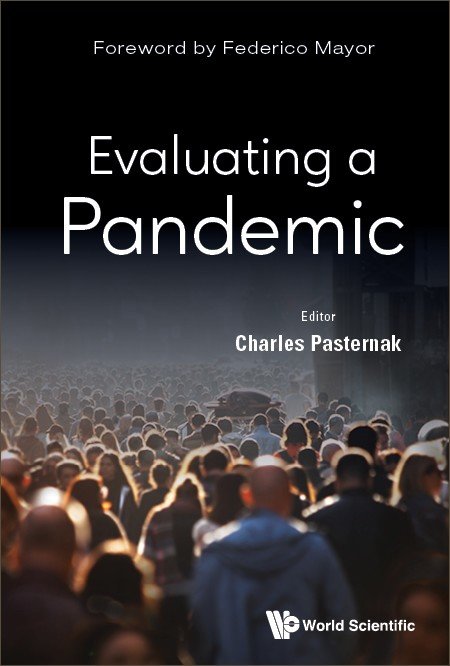System Upgrade on Tue, May 28th, 2024 at 2am (EDT)
Existing users will be able to log into the site and access content. However, E-commerce and registration of new users may not be available for up to 12 hours.For online purchase, please visit us again. Contact us at customercare@wspc.com for any enquiries.
Written by an international group of experts and endorsed by leading scientists, this multi-author book answers two of today's most pressing questions: the origin of the virus and the consequences of lockdown. Aimed at the general reader as well as at researchers and medical doctors, its span includes previously suppressed data on the origin of the virus, the development of novel mRNA vaccines, the case for a Swedish type of mild lockdown, and analyses of social and political issues thrown up by the pandemic. Evaluating a Pandemic is an incisive account of how civilisation grappled with the greatest world crisis since WWII. Join Charles Pasternak and his authors as they sketch a future of health, equity, and hope.
Related Link(s)
- Press Release: COVID-19: Lessons from the Pandemic
Summary: The book addresses the source of the virus, the construction of vaccines such as the Oxford-AstraZeneca vaccine and novel mRNA vaccines, the diagnosis and follow-up of infected persons, the British government's response to the outbreak, the economic result of lockdown policies, and the sociological consequences of lockdown and of working from home.
Sample Chapter(s)
Foreword
Introduction
Chapter 11: Evaluating COVID-19 in the Context of Global Catastrophic Risk
Contents:
- Foreword
- Introduction
- About the Editor
- About the Contributors
- The Origin of the COVID-19 Viru (Angus Dalgleish)
- ChAdOx1: How an Academic Vaccine Achieved Global Reach (Sean Elias)
- mRNA Vaccines: From Lab Concept to Leading Rescue Platform During the COVID-19 Pandemic (Hana Hassanin)
- Leveraging COVID-19 Diagnostics to Confront Both Epidemic and Endemic Diseases (Anne Hoppe, Aurelia Vessiere and Daniel G Bausch)
- First as Farce, Twice as Tragedy: US Exceptionalism in COVID-19 Response (Martha Lincoln)
- What Do Four Waves of COVID Tell Us? (David Meenagh and Patrick Minford)
- Trust the Public? How the UK Government Got the Psychology of COVID-19 Wrong and Why It Matters (Stephen Reicher)
- Navigating the Waves of Change: Emotional Agility as the Compass for Internal Auditors (Ana Martins and Narishaa Shah)
- The Lessons of Past Pandemics (A C Grayling)
- Grey Rhino, Black Swan or Dragon King? The COVID-19 Pandemic in Historical Perspective (Niall Ferguson)
- Evaluating COVID-19 in the Context of Global Catastrophic Risk (Tom Hobson, Lara Mani, Catherine Rhodes, and Lalitha Sundaram)
- Index
Readership: All stakeholders involved in the COVID-19 response (scientists, clinicians, psychologists, economists, bureaucrats, politicians). The book will also be of interest to historians and sociologists, as well as to the general reader.






